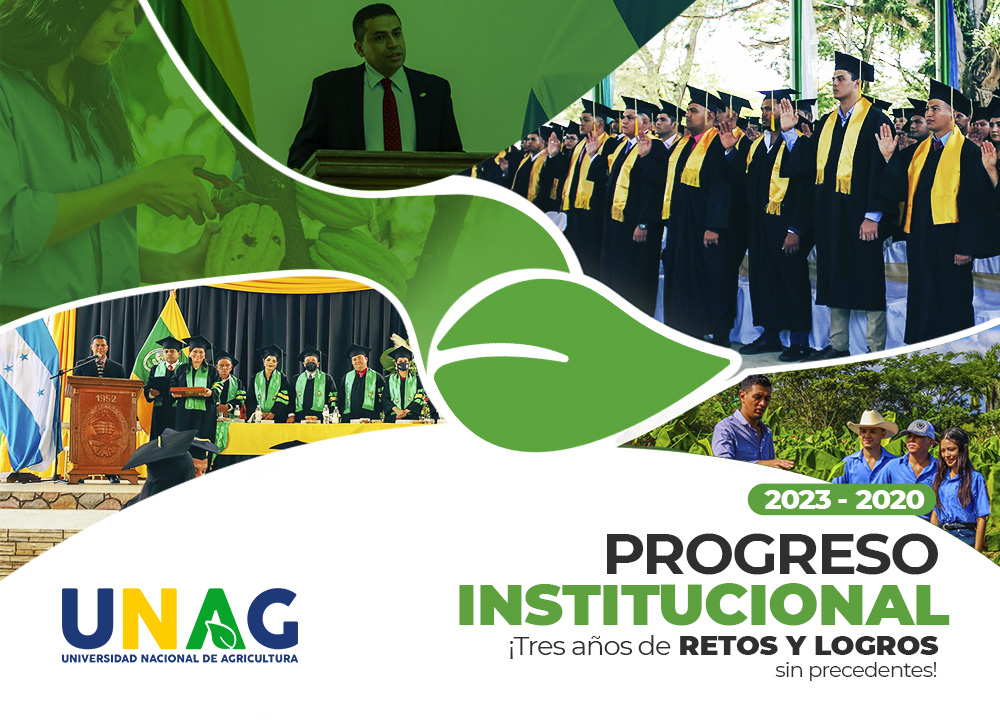El Comisionado Universitario de Derechos Humanos es la persona encargada de velar y defender los derechos individuales de todos los miembros de la comunidad universitaria (docentes, estudiantes, graduados, personal administrativo y toda persona que trabaje con y para la Universidad Nacional de Agricultura) ante actos u omisiones de las unidades, autoridades, funcionarios o docentes de la Universidad que los vulneren.
El Comisionado es autónomo en el ejercicio de sus funciones e independiente de los órganos de gobierno de la Universidad y no es un órgano ejecutivo.
El Comisionado tiene por objeto asesorar, apoyar y, en su caso, representar jurídicamente a los universitarios e integrantes de la comunidad universitaria, en el desahogo de los procesos previstos en el Estatuto de la Universidad y sus Reglamentos.
Podrá Fungir como mediador o conciliador en los conflictos individuales que surjan, en cuyo contenido se aprecie que los órganos de gobierno, de autoridad o los servidores universitarios, han menoscabado los derechos, deberes e intereses legítimos de los universitarios o de los integrantes de la comunidad universitaria, siempre y cuando dicho menoscabo no constituya una violación de los derechos humanos. El Comisionado Universitario no podrá conocer de asuntos de naturaleza laboral, evaluaciones académicas, procesos electorales, resoluciones disciplinarias o asuntos que puedan ser impugnados por otras vías o instancias establecidas en la Legislación Universitaria, o en leyes del país.
La labor del Comisionado Universitario se rige por seis principios: independencia y autonomía; neutralidad e imparcialidad; confidencialidad; ética, libertad; y subsidiariedad y legalidad:
- Independencia y autonomía: En el ejercicio de su cargo, el Comisionado Universitario, estará sujeto a la normativa universitaria, nacional e internacional, sin embargo, sus actuaciones no estarán sometidas a mandato imperativo de ninguna instancia universitaria, ni se le podrá dirigir instrucciones por ningún órgano de la universidad.
Siempre con apego a la normativa y políticas financieras de la institución y del Estado, el Comisionado Universitario goza de autonomía relativa para la administración de su personal y presupuesto. Este principio no lo exime de la transparencia y rendición de cuentas, tanto en materia sustantiva como administrativa. - Neutralidad e imparcialidad: El Comisionado Universitario no está alineado con ningún sector de la Universidad, ni sustituye la representatividad de los frentes, asociaciones o el sindicato.
El Comisionado Universitario observará la objetividad en el tratamiento de personas y asuntos. En la tramitación de las quejas y denuncias, oirá, según el caso de que se trate, a los representantes del órgano o servicio cuestionado. - Ética: Actuar basado en principios naturales y absolutos de respeto, a los principios y valores universales que rigen nuestra sociedad.
- Confidencialidad: La información y los datos recabados como consecuencia de la tramitación de los asuntos que lleve a cabo el Comisionado Universitario tendrán carácter confidencial. El Comisionado Universitario podrá mantener en reserva la identidad de quienes presenten quejas o denuncias, si estos realizan un pedido expresoen ese sentido; o aún sin estasolicitud, si de acuerdo a su criterio considera que la revelación de nombres podría dar lugar a represalias.
- Libertad: El procedimiento de la Oficina del Comisionado Universitario está exento de solemnidades y rigorismos procesales innecesarios; es ágil, gratuito, flexible y no formalista. Tiene la facultad de actuar según sus valores, criterios, razón y voluntad, basado en normas y leyes nacionales.
- Subsidiariedad y principio de legalidad: El Comisionado Universitario ejercerá su mandato en el contexto de las competencias de los otros órganos universitarios sin sustituirlos. Su actividad no sustituye a las instancias primarias y directamente competentes, siempre que las mismas se encuentren conociendo de una situación dentro de los términos establecidos.
El Comisionado Universitario tendrá, al menos, las siguientes modalidades de intervención en casos individuales, colectivos, o en asuntos de interés general:
- Recepción y tramitación de quejas y denuncias. Conocerá de quejas y denuncias cuando el peticionario presume que un órgano, servicio, docente o empleado de la Universidad Nacional de Agricultura le ha violado un derecho o le ha prestado un mal servicio.
- Atención de solicitudes y consultas: Si el usuario ya realizó gestiones directas previamente, y su petición no entraña un daño a terceros, ni compromete principios éticos, el Comisionado Universitario podrá atender solicitudes y consultas sobre sus áreas de competencia, en apoyo al derecho de petición de los interesados.
- El Comisionado Universitario no puede atender solicitudes que impliquen la exención individual del cumplimiento de una norma o plazo emitido válidamente. Sin perjuicio de lo anterior, sí puede, a partir de una solicitud o consulta, estudiar si una norma produce situaciones o resultados injustos. En estos casos, luego de alcanzar una opinión informada, formulará ante los órganos de gobierno de la Universidad las sugerencias o recomendaciones que estime pertinentes para subsanar las deficiencias detectadas.
- Mediaciones: El Comisionado Universitario, podrá actuar como mediador en conflictos individuales y colectivos que involucren a miembros o sectores de la comunidad universitaria, previo consentimiento de las partes.
- Con base en el principio de informalidad en el procedimiento y flexibilidad de la respuesta, pero siempre dentro del marco de la legalidad vigente, el Comisionado Universitario decidirá, caso por caso, si la mejor forma de abordar una queja es a través de la búsqueda de una solución amistosa entre las partes.
- Inspecciones, comparecencias y misiones de observación: El Comisionado Universitario, o su personal, podrá, de oficio o a petición de parte, constituirse sin restricciones en cualquier sitio de los campus de la Universidad Nacional de Agricultura para constatar la existencia de violaciones a derechos o la prestación de un mal servicio contra miembros de la comunidad universitaria. Igualmente, con motivo de la investigación de quejas y denuncias presentadas, podrá realizar inspecciones en cualquier dependencia de la Universidad Nacional de Agricultura y socializar todos los documentos que sean necesarios para el desarrollo de sus funciones. Realizándolas con discreción y prudencia, a fin de salvaguardar la armonía de la comunidad universitaria.
- Así mismo, podrá asistir como observador a las sesiones del Consejo Superior Universitario, y de cualquier órgano colegiado de la Universidad Nacional de Agricultura; incluyendo aquellas instancias interinstitucionales, temporales o permanentes, en las que participe la Universidad cuyos actos o resoluciones pudiesen afectar a un miembro de la comunidad universitaria.
- A petición de los miembros de una unidad, organización o asociación de cualquier sector universitario, y obtenido el consenso de las autoridades y partes contendientes, el Comisionado Universitario, podrá realizar tareas de observación en los procesos de elección de autoridades, estudiantiles y gremiales de la institución.
- Incidencia sobre políticas universitarias: Dentro de su ámbito material de competencia, el Comisionado Universitario podrá identificar e investigar tendencias, problemas y preocupaciones de interés general y podrá plasmar el resultado de su análisis en propuestas de adopción o cambio de normas, políticas, procedimientos o prácticas.
- Comunicación, promoción y sensibilización sobre derechos y buenas prácticas de servicio: Sobre la base de la sistematización de las quejas que se le presenten, el Comisionado Universitario realizará campañas de comunicación, promoción y sensibilización sobre el respeto a los derechos de todos los miembros de la comunidad universitaria y el establecimiento de buenas prácticas de servicio por parte de las dependencias pertinentes de la institución. Para ello, se podrán editar publicaciones y difundir información en los formatos más adecuados para el tema y la audiencia seleccionados.

René Ivan Medina Cerrato, Abogado
Comisionado Derechos Humanos de la UNAG
Horario de atención
Lunes a viernes 8:00 am a 4:30 pm
Celular: +504 98724062


